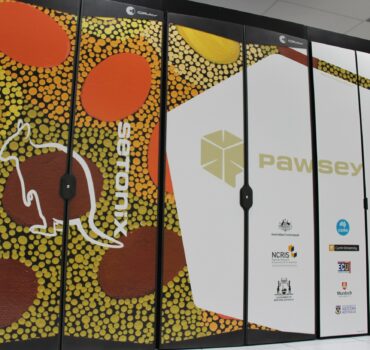XENON Wins Multi-Million Dollar High Performance Computing Contract With University of Queensland
28 Apr 2015
XENON Systems, a high performance computing (HPC) specialist, has won a competitive tender to build and deliver a bespoke HPC computer that can process and analyse larger datasets than ever before, and put Australia at the forefront of big data research.
 XENON will build the FlashLite computer and pre-configure the operating systems and cluster middleware at its production facility in Melbourne. The fully functional FlashLite computer, the first of its kind in Australia, is scheduled to be up and running at the University of Queensland in July this year.
XENON will build the FlashLite computer and pre-configure the operating systems and cluster middleware at its production facility in Melbourne. The fully functional FlashLite computer, the first of its kind in Australia, is scheduled to be up and running at the University of Queensland in July this year.
Led by Professor David Abramson, designer of FlashLite and Director of the University of Queensland’s Research Computing Centre, the computer includes three main innovations: high speed flash memory (instead of spinning disk), large amounts of high-speed main memory and software shared memory. Inspired by the US National Science Foundation Machine, Gordon, it will help deliver breakthroughs in research such as cardiac disease, climate change and astrophysics.
XENON will deliver a system that includes ScaleMP software to provide huge memory mainframe-style processing benefits in a modern cluster system using next generation technologies. Compute nodes in FlashLite can be flexibly aggregated together into larger ‘supernodes’ using ScaleMP’s vSMP (versatile symmetric multiprocessing) software. This software combines multiple physically separate servers into one single virtual high-end SMP machine.
“FlashLite will solve a problem that is everywhere these days: big data, and how to exploit it in critical research,” said Professor Abramson. “The difference is how we approached the problem; we asked whether existing computing systems were fundamentally built the right way to leverage big data. XENON proposed a suitably different solution that offered genuine innovation to help this.”
Dragan Dimitrovici, CEO at XENON Systems, said: “We’re an agile company with close vendor partnerships and expertise in sourcing and evaluating next generation technologies. This combination, together with existing experience in working with research and academia, means we can recommend truly cutting-edge solutions to match funding timeframes. FlashLite is indicative of exactly the kind of project we like to work on.”
XENON has also committed to joint R&D activities with the University of Queensland team to co-fund a research project on big data technologies.
FlashLite was funded by the Australian Research Council in conjunction with CSIRO, Griffith University, Monash University, Queensland Cyber Infrastructure Foundation, Queensland University of Technology, The University of Queensland and The University of Technology, Sydney.
To maximise FlashLite’s availability to a wide cross-section of research, a portion of its capacity will be available to Australian researchers outside of the above-named stakeholder institutions, via the National Computational Infrastructure’s (NCI) National Computational Merit Allocation Scheme (NCMAS).
Technical information about FlashLite:
- 1632 CPU cores
- 34.8 TB of DDR4 RAM
- 326.4 TB of NVMe flash storage
- 65.28 Tflop/s (Rpeak)
- 68 compute nodes and two similarly configured login nodes
- Dual rail Mellanox FDR (56 Gbps) Infiniband fabric
If you’d like to learn more about XENON’s HPC solutions, please contact us or call 1300 888 030.
Talk to a Solutions Architect
 Download the XENON-UQ Flashlite Case Study
Download the XENON-UQ Flashlite Case Study

